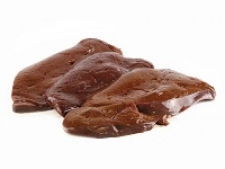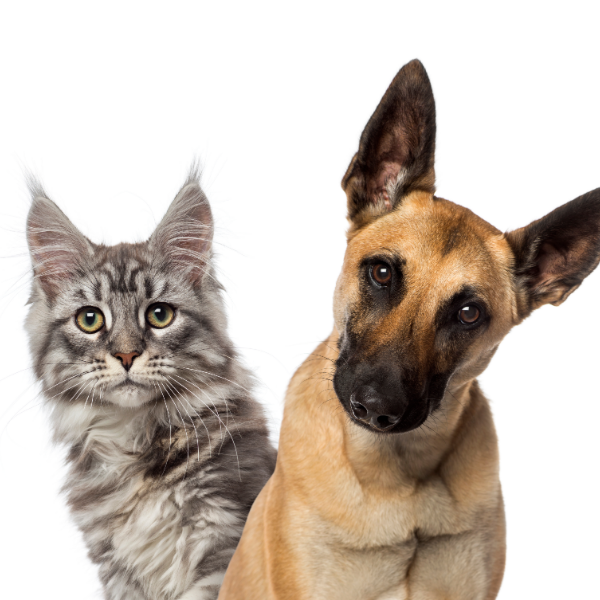Antioxidants
An antioxidant is a molecule that inhibits the oxidation of other molecules that create free radicals. In turn, these radicals can start the chain reactions that occur in cells, causing damage or death to the cell. Antioxidants terminate these chain reactions by removing free radical intermediates and inhibiting other oxidation reactions. Antioxidants are widely used in nutritional supplements for pets and humans. They have been investigated for the prevention of diseases such as cancer and heart disease.
Biotin
Biotin is a water-soluble B vitamin and a coenzyme in the synthesis of fatty acids, amino acids. It is essential in regulating blood glucose levels and cell growth in mammals.
Chromium
Chromium is an essential mineral that is important in the metabolism of carbohydrates and fats. It also stimulates cholesterol and fatty acid synthesis which are important for brain and body processes. Chromium also aids in the metabolism of insulin.
Cobalt
Cobalt is a mineral that is a component of vitamin B12. It is essential for the formation of red blood cells and of the myelin nerve sheath. It increases the assimilation of iron and the effectiveness of glucose transportation from the blood to cells.
Co-Enzyme Q10
Co-Enzyme Q10 is a vitamin-like, oil-soluble substance that is present in eukaryotic cells (nucleus containing cells) and is an important component of aerobic cellular respiration which generates the most commonly used energy in the body: adenosine triphosphate (ATP). The liver, heart, and kidneys have the highest energy requirements in the body and therefore have the highest concentration of co-enzyme Q10. It is essential for healthy heart function and blood vessels and is also an antioxidant.
Copper
Copper is a trace mineral essential for all living things on earth. It is necessary for the growth, maintenance, and development of bones, connective tissues, the brain, heart, and other organs. It is involved in the formation of red blood cells and deficiency will cause anemia. Copper also helps cells utilize iron, metabolize cholesterol and glucose. It is a major component in stimulating the immune system to promote healing, fight infection and repair injured tissue, and neutralizes the negative effects of free radicals on cells. Lastly, copper is involved in the production and release of proteins and enzymes that regulate nerve transmission, blood clotting, and oxygen transport within the body.
Folic Acid
Also known as vitamin B9, folic acid is essential to many bodily functions. Mammals need folic acid to synthesize and repair DNA and it is essential for the rapid division and development of cells that occurs during pregnancy and in growing mammals. Folates are also needed to produce healthy red blood cells.
Iron
Iron is a mineral that is essential for synthesizing healthy red blood cells and transporting oxygen to every cell in the bodies of mammals. It also plays a role in producing adenosine triphosphate (ATP), the body`s main energy source. It is a vital nutrient for treating anemia. It is easy for your pet to obtain enough iron on a properly balanced raw diet since red meats and organ meats are high in this element.
Molybdenum
Molybdenum is an essential nutrient that is not well understood. It plays roles in several biological processes in mammals including waste processing via the kidneys, development of the nervous system, and energy production in cells. Studies are being done to find out more about this little-known element. There is evidence that suggests that it is involved in the uptake of copper in the body and that it may be useful for preventing certain cancers and helping with the negative side effects of cancer-fighting drugs.
Pantothenic Acid (Vitamin B5)
Pantothenic acid is an essential nutrient for dogs and cats. It is a water-soluble vitamin required for the synthesis of coenzyme-A (needed for several biological processes including the synthesis of fatty acids), proteins, carbohydrates, and fats. Its name is derived from the Greek word pantothen meaning `from everywhere` because it is found in trace amounts in almost every food.
Phosphorus
Phosphorus is a mineral found in every cell in the body. The main function is to form bones and teeth but it also is involved in the utilization of carbohydrates and fats, formation of ATP, synthesis of proteins, and growth and maintenance of cells. Additionally, it works with B vitamins and is involved in kidney function, regulating heart rate, nerve impulses, and contraction of muscles.
Zinc
An essential trace mineral, zinc is involved in many metabolic processes including triggering enzymes, building proteins, and creating DNA. It is necessary for healthy bones, muscles, kidney function, liver function, and maintenance of the neurological and reproductive systems. It also serves as a structural component in proteins. It is needed for growth and pregnancy. Interestingly, it is required for proper taste and smell.
Vitamin A
Vitamin A is important in the maintenance of the immune system, growth and development, good vision, bone metabolism, gene transcription, skin and cellular health, and several other metabolic functions. It is a fat-soluble vitamin so toxicity can occur in the event of a long-standing unbalanced diet. Supplementation is not recommended unless otherwise prescribed by a veterinarian (in cases of deficiency). A well-balanced raw diet will provide correct and safe amounts of this vitamin. Cod liver oil is high in vitamin A and should not be used regularly as a supplement. Notably, cats cannot convert retinol to vitamin A so they must have raw liver in the diet to provide pure forms of vitamin A.
Vitamin B1 (Thiamine)
Vitamin B1 is important in many cellular processes including the catabolism of sugars and amino acids as well as the biosynthesis of neurotransmitters. It is necessary for the conversion of fats and carbohydrates. It is also needed for the manufacture of hydrochloric acid, needed for digestion.
Vitamin B2 (Riboflavin)
Vitamin B2 is involved in metabolism in energy, fats, ketone bodies, carbohydrates, and proteins. It is necessary for healthy skin, hair, eyes, and liver. It also works as an antioxidant in the body and is needed for red blood cell production and body growth. Riboflavin helps the body change vitamin B6 and folate into usable forms.
Vitamin B3 (Niacin)
Vitamin B3 is involved in almost every oxidation-reduction process in cells, catabolism of fats, carbohydrates, and protein and DNA repair. It is also an important factor in fatty acid and cholesterol synthesis. Most mammals including the dog can convert the amino acid tryptophan into niacin but the cat cannot. The cat must obtain niacin from sources that it naturally occurs in. Muscle and heart meat are high in this nutrient.
Vitamin B5 (See Pantothenic Acid above)
Vitamin B6
Vitamin B6 is important for the metabolism of amino acids and the enzymatic reactions that govern the release of glucose from glycogen. It also plays a major role in the metabolism of proteins, carbohydrates, lipids, and amino acids. B6 is involved in the biosynthesis of neurotransmitters, the formation of hemoglobin, and immune function.
Vitamin B12
Vitamin B12 is required for the formation of red blood cells and neurological function and must be obtained from food. It is involved in the metabolism of every cell in the mammalian body including DNA regulation and synthesis, fatty acid synthesis, and energy production. B12 is found in high protein foods and is plentiful in a well-balanced raw diet.
Vitamin C
Vitamin C is an essential nutrient and is required for countless metabolic reactions in all mammals. It plays a major role in the health of the adrenal glands and the immune system, is an antioxidant and natural antihistamine. It helps form proteins responsible for the healthy growth of skin, ligaments, tendons, and blood vessels and helps wounds heal and scars form. Vitamin C also works to repair cartilage, teeth, and bones.
Vitamin D
Vitamin D is responsible for the absorption of calcium and phosphate. The mammalian body can produce vitamin D in the presence of sunshine but it can also be obtained from food. It is necessary for healthy bones, cardiovascular function, nervous and immune systems.
Vitamin E
Vitamin E is an antioxidant, enzymatic activity regulator, protects lipids, prevents the oxidation of fatty acids, and plays a role in neurological function. It is widely used as a natural preservative in foods.
Vitamin K (Phylloquinone)
Vitamin K plays a role in the biosynthesis of proteins that act to coagulate blood and is needed for metabolic processes within the cells of bones and other tissues.



